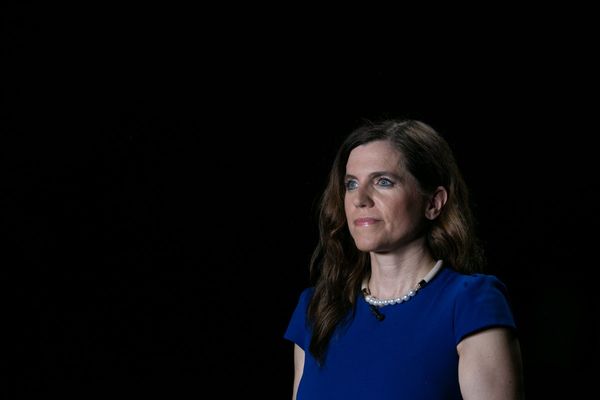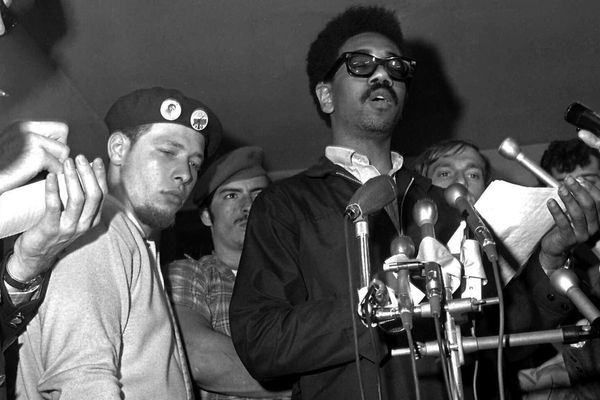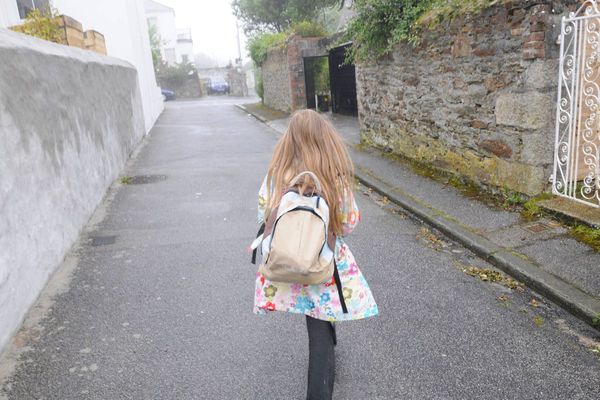
A phone call between Boris Johnson and Vladimir Putin that the prime minister was forced to cancel on Monday has been rescheduled for Wednesday, Johnson’s spokesman has said, after the Kremlin rejected a request to hold it on Tuesday.
It is not clear if the initial rejection stemmed from genuine scheduling issues or if it was a calculated snub by Moscow to highlight Britain’s irrelevance, and Johnson’s weakness, but in any case it dealt a blow to Johnson’s efforts to present himself as an important diplomatic player in the Ukraine crisis.
The Monday call was cancelled so Johnson could make a statement to MPs in parliament over Downing Street parties during lockdown.
The prime minister flew to Kyiv on Tuesday offering the Ukraine government £88m to fight corruption, part of a British show of solidarity with the country in its threatened confrontation with Russia.
Johnson will be hoping the brief visit takes attention away from his domestic political travails over sanctioning Downing Street parties during lockdown.
The foreign secretary, Liz Truss, had been due to accompany Johnson to Ukraine, but was forced to cancel after she tested positive for Covid. Truss appeared unwell as she delivered a Commons statement promising Russian oligarchs would have nowhere to escape UK sanctions if they invaded Ukraine.
Britain is seen as one of the staunchest supporters of Ukrainian sovereignty, providing military aid, and its stance has been compared favourably by some Ukrainian politicians with that of Germany, where a debate still rages about whether the government in Berlin can help militarily if at all.
Since 2015, British armed forces have trained more than 22,000 Ukrainian troops to defend themselves, as well as providing soft loans for the country to strengthen its navy. The Ukrainian army is already training with new anti-tank missiles provided by the UK.
Johnson is one of many European politicians pouring into Kyiv this week, including the Polish prime minister, Mateusz Morawiecki, the Dutch prime minister, Mark Rutte, and numerous foreign ministers.
The £88m of new funding to combat corruption is taken from the UK’s good governance fund. The US Treasury is waging a relentless campaign of sanctions and forfeiture against Ukrainian oligarchs, including Igor Kolomoisky, who has been accused of embezzling state funds.
The money is also intended to help Ukraine diversify away from its reliance on Russian gas, seen as one of the structural weaknesses in the geopolitical struggle with Moscow.
Johnson will need to strike a delicate balance between highlighting the massing of Russian troops at the border and welcoming the continued diplomacy under way between the US and Russia. President Volodymr Zelenskiy has urged Europe not to be hysterical about the Russian threat fearing a sense of panic could drive the delicate Ukrainian economy into a tailspin.
In advance of his visit, Johnson said: “It is the right of every Ukrainian to determine how they are governed. As a friend and a democratic partner, the UK will continue to uphold Ukraine’s sovereignty in the face of those who seek to destroy it.
“We urge Russia to step back and engage in dialogue to find a diplomatic resolution and avoid further bloodshed.”
The UK defence secretary, Ben Wallace, is in discussions with Nato about what further British military support can be offered to support the bloc’s eastern flank. He visited Hungary on Monday, one of the countries in the European Union closest to Putin. Its prime minister, Viktor Orbán, was due to meet the Russian president on Tuesday and Hungary has so far ruled out the deployment of more Nato troops inside its country and appeared lukewarm about imposing further sanctions on Russia.
Johnson is due to meet Zelenskiy at the president’s official residence, the impressive neo-classical turquoise Mariinsky palace in Kyiv, overlooking the Dnipro River and next to Ukraine’s parliament.
They are scheduled to have a joint press conference at 7pm local time (5pm GMT).
The meeting takes place amid differences between the US and UK and Zelenskiy’s government over the nature of the Russian military threat. According to the latest Ukrainian estimates, the Kremlin has assembled 135,000 troops on the border, up 8-10,000 from last week.
The Kremlin has said it will hold military exercises in Belarus, beginning 10 February, featuring tactical battalions and heavy weaponry within striking distance of Kyiv. The Biden administration has said it is “distinctly possible” a Russian invasion is imminent.
Zelenskiy, however, has dismissed this scenario. He points out his country has been at war with Moscow since 2014, with low-intensity fighting taking place every day in the Donbas region between the Ukrainian army and Russian-backed separatists.
Speaking on Friday, Zelenskiy said invasion panic was “unbalanced and unreasonable”. It had damaged the Ukrainian economy, with investor confidence and the national currency badly hit, he said. Referring to the UK’s withdrawal of diplomats from Kyiv, he told the Guardian: “The captains should not leave the ship. I don’t think we have a Titanic here.”
Ukrainian officials agree that Putin can order an invasion at any time. But they see the Kremlin’s menacing troop build up as part of a long-scale destabilisation plan, which may yet see Moscow step back from the brink, only to escalate again in the autumn.
The Ukrainian defence minister, Oleksii Reznikov, has welcomed Downing Street’s delivery of anti-tank weapons and a $1.7bn (£1.26bn) agreement with London to refit the Ukrainian navy. The weapons arrived in Kyiv last week by military transport.
The shoulder-fired system, known as NLAW, has even become a popular meme.
One Kyiv blogger, Alexs Joda, posted an image on Instagram of the weapon with the union flag, the Beatles and the words: “All you need is NLAW”. Others have thanked “the British people”.
“We don’t care about the Downing Street parties. We care that our soldiers receive an effective weapon to confront Russia,” Oleksii Riabchyn, a former parliamentary deputy and adviser to Ukraine’s gas firm Naftogaz said.
He added: “Boris Johnson is popular here. He’s trying to confront Putin. That’s what makes him a great leader. We need more weapons from him.”
Other observers, however, said Johnson’s decision to visit Kyiv had little to do with defending democracy from Russian authoritarianism. Instead it was an attempt to escape the Sue Gray inquiry into lockdown socialising in Downing Street, the Met’s investigation and negative headlines at home.
“I think the government is correct to support Ukraine,” said David Clark, who was a special adviser to the former Labour foreign secretary Robin Cook. “But I suspect a lot of the policy on this is about deflecting attention from Johnson’s own credibility issues at home rather than doing the right thing on European security.”
Clark added: “Johnson has been unwilling to deal with the issues in the Russia report or with the Russian money that has gone into the Conservative party. The Kremlin’s influence operations in the UK are well documented, including the prime minister’s personal contacts.”







